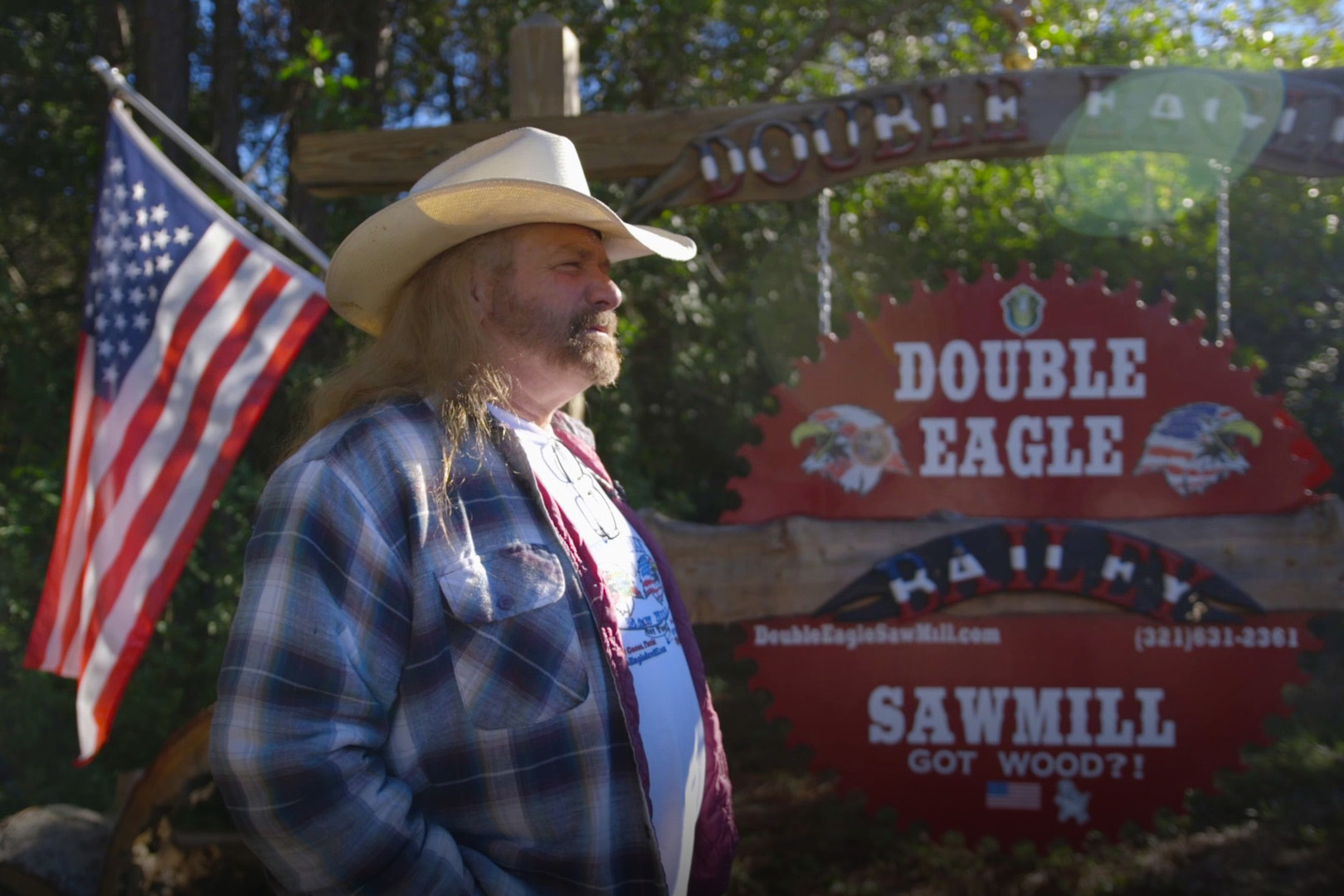

How It's Done:
NEON SIGNS
Grainger Everyday Heroes: Sawmiller
By Grainger Editorial Staff 3/5/20
The metallic whine of a bandsaw filled the small clearing in the Florida swamp that is home to C.W. Bailey’s Double Eagle Sawmill. C.W., a U.S. Air Force veteran, stood at the bandsaw’s controls, carefully guiding the blade through a red cypress log harvested from the banks of the nearby St. John’s River.
When the cut was finished, C.W. pulled the saw back and flipped over the first rough cut board, revealing a streak of dark red heartwood running down the center of the log. “People don’t come to me to get two-by-four’s,” he said, adjusting the saw’s height to make the next cut. “They come to me to get things they can’t get anywhere else.”
A Cut Above
“I mill almost no dimensional lumber,” he said. C.W. mills custom beams and flitches that showcase the beauty of Central Florida’s hardwood trees.
The Double Eagle carries wood you won’t find in most lumber yards: the sawmill lot is lined with logs of wild black cherry, bald cypress, and Cuban mahogany, all prized by craftsmen for their vibrant colors and unique grain. “Certain things you can’t get, except from a custom sawmill,” he said. “A lot of places won’t cut this stuff. One of the coolest things about having a sawmill is you can make anything you want. Any thickness, any width. You just make it.”
Hands-On Milling
The Double Eagle is a small operation, and C.W. is personally involved in every stage of the milling process. He positions the logs using an excavator with a grapple attachment. “I pick it up, bring it over here,” he said, pointing to the bandsaw’s bright red track assembly. “Then I roll it into place, lock it down, set the blade height, and drive the saw through the log to produce these.” He gestured at the rough cut boards stacked around the bandsaw, waiting to be finished into custom tables, shelving, mantles and bar tops.
Inside a shipping container, C.W. stores his most valuable cuts. “This is a piece of old-growth sinker cypress,” he said, as he picked up a slab whose rich brown surface hinted at an unusual history. “This log was probably a hundred years old when it was cut down, then it spent 60 years at the bottom of the St. Johns River. Sinker cypress logs are incredibly expensive,” C.W. said, because they have to be salvaged from the riverbed.
For C.W., running a custom sawmill gives him the independence to pursue woodworking projects on his own terms. “When I decided to pull the trigger on this,” he said, “I knew that, even if I never sold a single piece, I would have all the wood I needed to do anything.”
![]()
The information contained in this article is intended for general information purposes only and is based on information available as of the initial date of publication. No representation is made that the information or references are complete or remain current. This article is not a substitute for review of current applicable government regulations, industry standards, or other standards specific to your business and/or activities and should not be construed as legal advice or opinion. Readers with specific questions should refer to the applicable standards or consult with an attorney.






